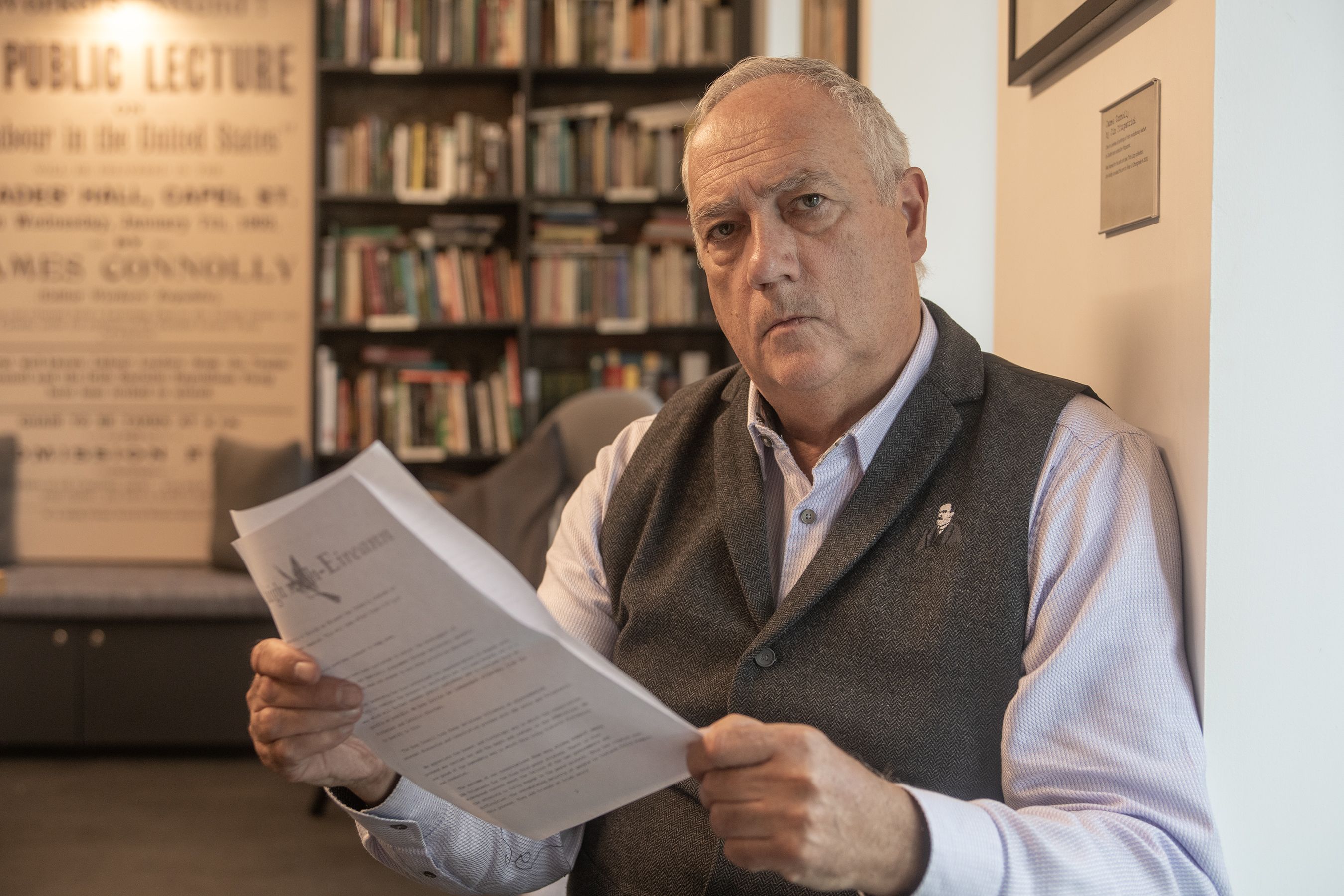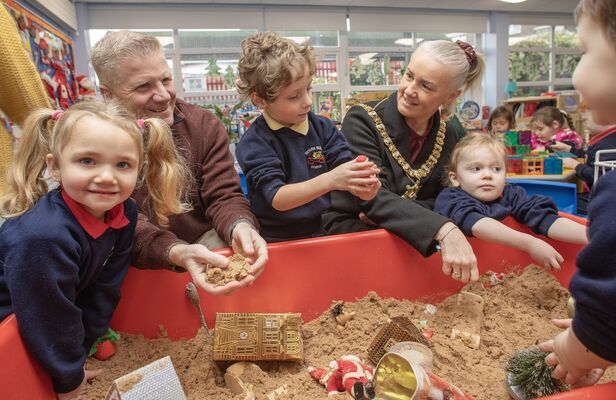SENIOR republican Séanna Walsh says the nature of the struggle for a united Ireland has changed and the future promises much more.
He was speaking 20 years after he read out an IRA statement announcing an end to its armed campaign. The historic statement, delivered on July 28 2005 in a video address by Séanna Walsh, was broadcast around the world.
Séanna served over 21 years in both the Cages and H-Blocks of Long Kesh, and was among the first republicans on the blanket protest after his arrest in 1976.
He was a friend and cellmate of Bobby Sands, Officer Commanding in the H-Blocks and first of the hunger strikers to die in 1981.
An event to mark the historic 20th anniversary of the IRA initiative has been organised for Saturday, July 26.
Gerry Adams and Seánna Walsh will take part in a discussion chaired by Mairead Farrell TD in the Balmoral Hotel on the Blacks Road, commencing at 2pm.
Looking back to 2005, Seánna says he consulted with his family before delivering the historic address.
"In 2005, it was one of those periods when there were a few hiccups in the peace process. Unionists had really dug their heels in and there was still so much to be done," he explained.
"People like myself spent time travelling the length and breadth of Ireland, meeting with the Republican community talking to them and trying to help them and get their head around this whole notion of a peace process and how we expected it to work, how we hoped it would work and what we saw for the future.
"On July 28, 2005, the IRA formally declared an end to its armed campaign.
"For me personally, I was asked to deliver that message. I remember sitting my family down and explaining to them and said, look, listen, this is what I've been asked to do. This is what I'm going to do. Are you okay with it?
"I had two teenage daughters and one youngster. I was concerned that my actions would have an impact on their lives. My wife was a Republican activist in her own right but I was concerned about the two girls, so therefore I explained to them why I was doing what I was doing.
"But for me, the main thing about 2005 was that we were creating a situation to ensure that the life that we had led would never be the life of any future generations of Republican young people and that's why I just felt it was fairly momentous.
"I was also concerned how it would be accepted within the Republican activist base.
"I understood that there was a whole generation of Republican activists, IRA volunteers and party members who had spent their lives fighting the British or supporting the fight against the British.
"To an extent, I understood that the way that some of them were looking at it was you were taking away their reasons for getting up out of bed in the morning. I was confident they could engage with me to help get their heads around it.
"At the same time, I was very focused on the fact that this was a positive, that we were moving forward to a new plan."
Looking ahead to Saturday's event, Séanna said it is a time to reflect on the past and look ahead to the future.
"There is a whole generation who weren't even born 20 years ago. It is up to people like me to help others understand the circumstances that led to that ceasefire, how momentous a step it was," he added.
"For me, I believe it was the nature of the struggle changing and there is still so much work to do today.
"We've changed again to the extent that today there are more United Irelanders than there has been since partition. I would say that Sinn Féin as a party has never been as strong North and South. We are on the cusp of achieving this referendum.
"Politics in the North of Ireland has changed. The Orange State has gone and the British have no reason to be here and that it is now time to call a border poll.
"On Saturday, myself and Gerry Adams will speak about the events of July 2005, the context to it and the future. There will be an opportunity for audience participation which is very important and we hope to see as many people there as possible."








